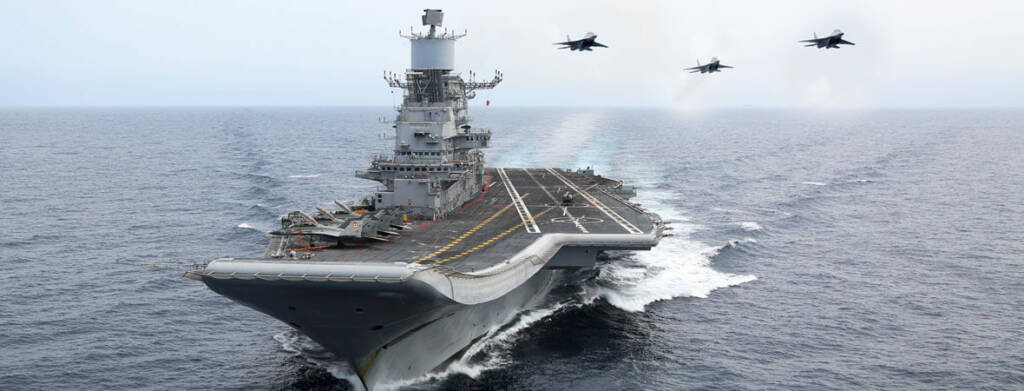The Indian Navy played a crucial role in deterring the Chinese aggression amid the ongoing standoff at the LAC in Ladakh. The Indian Navy kept the check on China’s aggression on the land and even ensured an upper-hand while at sea.
After the Galwan incident, Chinese media proudly announced about the losses inflicted on the Indian Armed Forces, but at the same time did not portray that the losses suffered by the PLA were even greater. Chinese aggression in Ladakh was met with a rejuvenated Indian Army which pushed back. The CCP received a strong message at land and also at the sea when the India Navy ensured a stop to China’s mischievousness out in the open waters.
A top naval officer said on Thursday that the Indian navy played a crucial role in ‘deterring’ Beijing’s aggression.
“The Navy is a silent service and once you sail over the horizon, nobody knows what happens, except those who have communication systems on the ships. The Navy played an important role in deterring the PLA (Navy) at that time and the message has gone across to them very unambiguously that they cannot mess with us at sea or on land,” said Vice Admiral Anil Kumar Chawla, Flag Officer Commanding-in-Chief, Southern Naval Command, as reported by The Indian Express.
Navy Chief Admiral Karambir Singh said that the Indian Navy is ready to deter any kind of aggression that emanates from China and threatens the maritime region. He then emphasized the cohesiveness of the Indian Navy, Army and the Air Force, which would be important to stem further threats that India faces from the paper dragon.
The Chief Admiral said: “Whatever we are doing is in close coordination with the Army and the Indian Air Force.”
Read More: Right after Galwan clash, India deployed warship in South China Sea sending China into a tizzy
The Chinese action in Ladakh was met with proper response and more as the Indian army rightfully pushed back Chinese soldiers. China misread the capability and the will and is now stuck in India’s backyard.
China cannot step forward due to India’s strength and cannot move back as it amounts to large bouts of humiliation for the pseudo superpower state.
Moreover, the Indian Navy’s cohesiveness with the Army ensured that India gets the upper hand even at sea. The Indian Army ensured a point of strength over the Chinese troops and the Indian Navy empowered it.
Navy’s strength in the Malacca strait, reinvigorated by the strengthening of infrastructure in the Andaman Islands ensured that India can choke China’s oil trade, 80% of which passes through the region.
Thus, the presence of the Indian navy was enough to deter China’s actions at sea. While the India Army pushed back against China’s aggression, it was the Indian Navy which helped deter Chinese threat.
Thus China’s decision to disengage the situation was not a step borne out of the idea to maintain peace but it was the threat of India’s Combined Armed Forces and the fear of irking the Indian Prime Minister Narendra Modi which kept China in-check.
